Introduced by: Miryam Singer, UC Arts & Culture Director and National Award for Musical Arts.
English closed captions
Miryam Singer invites you to his talk about opera, next Wednesday, August 25
The Office for the Arts and Culture at Pontificia Universidad Católica de Chile invites you to attend “Artifica tu Casa“, the second season of the experience of the arts. This season will present a series of eight talks about cinema, literature, visual and performing arts, music, architecture and heritage, hosted by some of the most prominent Chilean artists and academics from different Chilean universities.
Tune in each Wednesday in July and August at 18:30 (ET), starting July 7th. In just 30 minutes, the audience will be introduced to a fascinating arts-related experience.
English close caption will be available in the videos within 3 days after each talk at Youtube channel: Artes y Cultura UC. Talks can be followed live, in Spanish, through Youtube and Facebook Live on the fanpage: Dirección de Artes y Cultura.
Chilean Sign Language (LSCh) will be available.
For more information, please contact: artesycultura@uc.cl
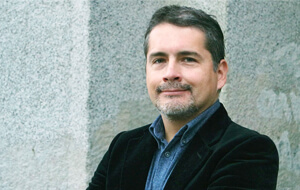
Cinema
Watch the talk here arrow_forward
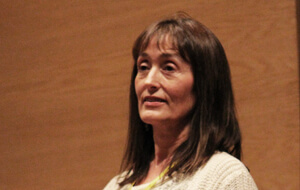
Theater
Watch the talk here arrow_forward
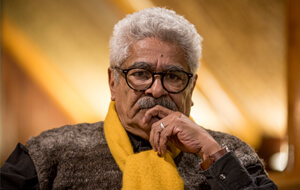
Architecture
Watch the talk here arrow_forward
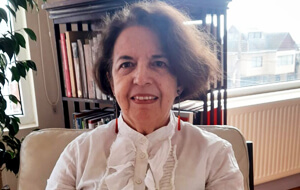
Prehispanic Art
Watch the talk here arrow_forward
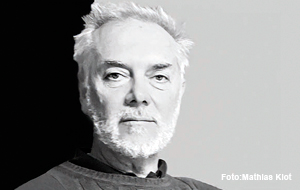
Ver presentación arrow_forward
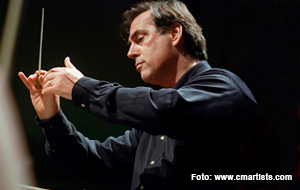
Ver presentación arrow_forward
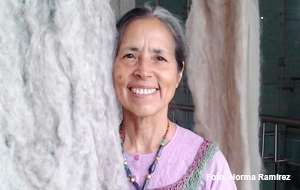
Ver presentación arrow_forward
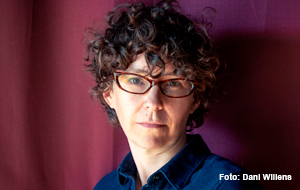
Ver presentación arrow_forward
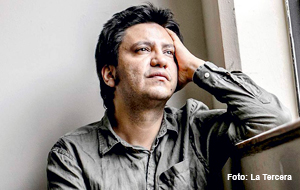
Ver presentación arrow_forward
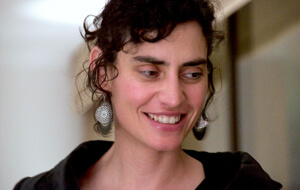
Visual Arts
Watch the talk here arrow_forward
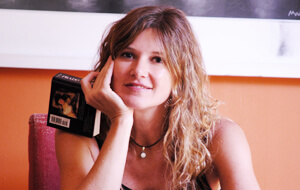
Literature
Watch the talk here arrow_forward
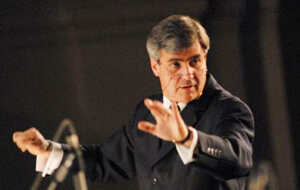
Music
Watch the talk here arrow_forward
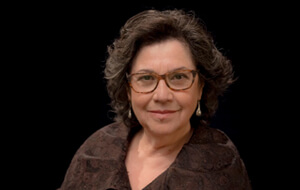
Opera
Watch the talk here arrow_forward
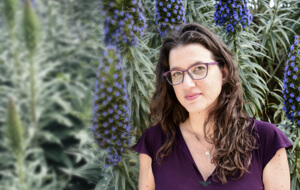
Literature
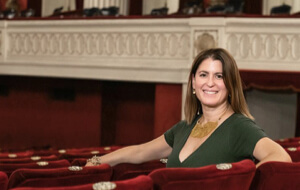
Dance
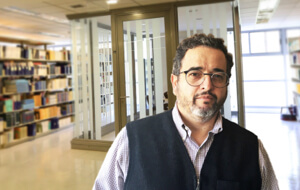
Visual arts
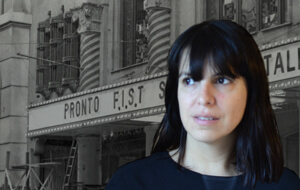
Cinema
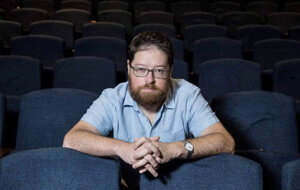
Performing arts
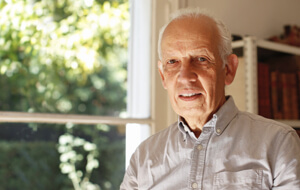
Architecture
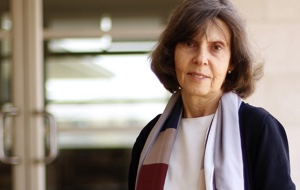
Visual Arts
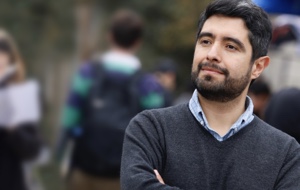
Performing arts
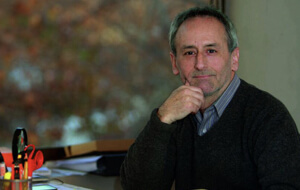
Architecture

Cinema
Watch the talk here arrow_forward

Theater
Watch the talk here arrow_forward

Architecture
Watch the talk here arrow_forward

Prehispanic Art
Watch the talk here arrow_forward

Visual Arts
Watch the talk here arrow_forward

Literature
Watch the talk here arrow_forward

Music
Watch the talk here arrow_forward

Opera
Watch the talk here arrow_forward

Literature

Dance

Visual arts

Cinema

Performing arts

Architecture

Visual Arts

Performing arts

Architecture
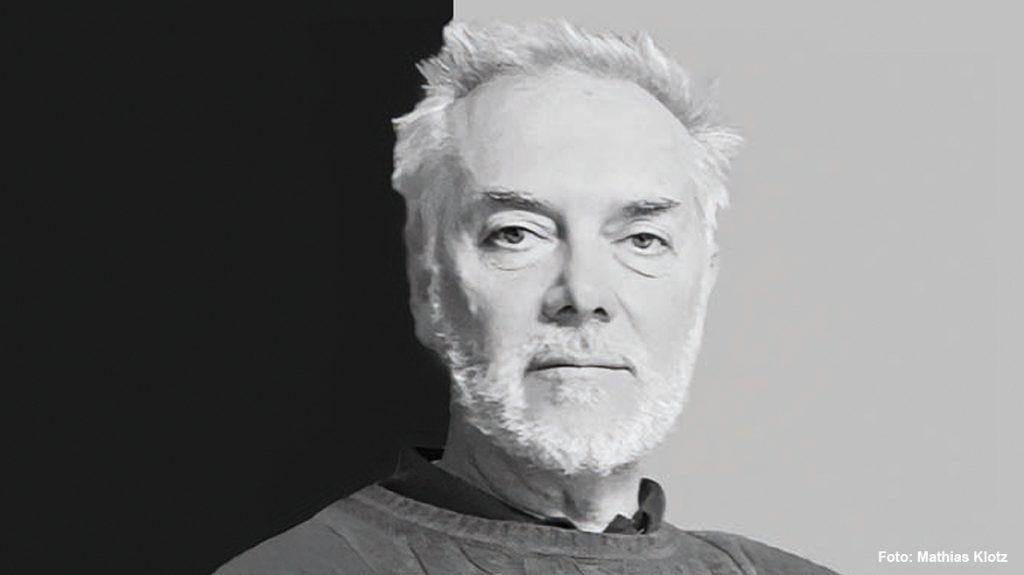
Miércoles, 3 de agosto, 19hrs.
Graduado de la Escuela de Arquitectura de Universidad Católica en 1990, Mathias Klotz es uno de los más prominentes arquitectos chilenos de su generación. Su obra ha sido reconocida con el Premio Borromini de Arquitectura en 2001, el Green Good Design Award en 2010, el Holcim Award en 2011, el Premio Latinoamericano de Arquitectura Rogelio Salmona en 2014 y el premio Aporte Institucional a la Arquitectura dado por la Asociación de Oficinas de Arquitectura de Chile en 2015.
Es un connotado conferencista con presentaciones en Chile, México, Estados Unidos, España, Francia, Italia, Irlanda, Turquía y China, entre otros.
Su obra ha sido expuesta en Chile, Estados Unidos, España, Francia, Italia, Alemania, Australia, Japón, y sus trabajos han sido publicados en numerosas revistas internacionales de Arquitectura.
Tiene obra arquitectónica en Chile, Argentina, Uruguay, República Dominicana, España, Líbano y China
Ha tenido experiencia docente en Alemania, Argentina, Italia, México, y España, donde ha sido guest y visiting professor. Actualmente se desempeña como decano de la Facultad de Arquitectura de la Universidad Diego Portales.
Conversa con ALEJANDRA BOSCH
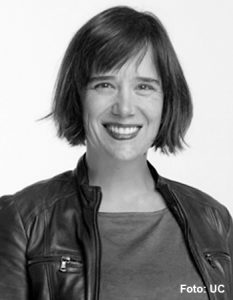
Docente del área de taller y representación de la Escuela de Arquitectura UC, tanto en pregrado como en el Magister en Arquitectura del Paisaje (MAPA). Se ha desempeñado como académica también en la Universidad Diego Portales y en la Architectural Association. Su área de investigación se ha centrado en la representación de infraestructura y paisaje como una ecología compleja. En el ámbito internacional ha dirigido diversos workshops como el Visiting School de la Architectural Association en México, el taller de paisaje en la Universidad DiTella en Argentina, y el Archiprix en Chile (2019). Ha sido profesora invitada de la Architectural Association en Londres. Ha trabajado en proyectos de Arquitectura del paisaje, urbanismo y arquitectura en Chile, China, Dubai, Qatar, Reino Unido, destacándose el proyecto de Longgang City en China para Groundlab.
CRISTIÁN OPAZO
Wednesday, August 12, 2020, 6:00 p.m.
During the period of the transition to democracy, the underground parties in venues like El Trolley, El Garage de Matucana, or Spandex had an enormous impact on the counterculture of the era. Indeed, when the university system had been dismantled, the dance floor was the place where a new generation of young theatrical artists forged the cultural repertoires that redefined Chilean society in the following decades. This talk explores the impact of those parties and their effects on the artistical arena.
EDWARD ROJAS
Universidad Austral
Miércoles 21 de julio de 2021, 18:30 hrs.
La arquitectura en madera de la tierra, el mar y el bordemar del Archipiélago de Chiloé, es expresión espiritual, material y tecnológica de la memoria histórica y cultural de sus habitantes y navegantes. Este material es flexible y versátil, puede acoger formas y programas diversos. Es frágil pues se deforma con el paso del tiempo, es perecible cuando la afectan la lluvia, los hongos, los xilófagos, y los incendios, y también es ecléctica. Como en un collage, une lo nuevo y lo viejo, lo propio y lo ajeno. La arquitectura en madera de la tierra y del mar del Archipiélago de Chiloé, es un patrimonio vivo, un continuum y un palimpsesto cultural milenario, en el cual nuestra obra, que busca unir pasado y futuro, es sólo un susurro.
—
Edward Rojas Vega (1951), arquitecto, académico y artista visual, nace en el desierto de Atacama, vive hace 44 años en la Isla de Chiloé. Cofundador del mítico “Taller Puertazul”, autor de una fértil producción teórica y arquitectónica sustentable de interés universal. Coautor de los libros “El reciclaje insular”, “Guía de Arquitectura de Chiloé”, “Palafitos de Castro, Chiloé” y “Una arquitectura del lugar”. En 2015 fue nombrado “Profesor extraordinario” de la Universidad Austral de Chile, casa de estudios en la cual actualmente imparte clases de magíster, así como también en la Universidad Central y de Santiago de Chile. Profesor de Taller de ISTHMUS en Panamá. De sus distinciones destacan: selección Premio Internacional Andrea Palladio, “Medalla Profesor destacado 15 años de ISTHMUS”; Premio Ensamble 2015; Premio Chiloé de Extensión Cultural, y Premio Nacional de Arquitectura 2016.
PATRICIA HENRÍQUEZ
Universidad de Concepción
Miércoles 14 de julio de 2021, 18:30 hrs.
La fiesta mesoamericana y andina ha sido el marco fundamental de restauración cíclica de un repertorio diverso de prácticas escénicas que circulan a través de cantos, danzas, movimientos y gestos, concentran memoria corporal y comunal, exigen presencia y participación, contemporaneidad y co-espacialidad entre quienes las crean, las reciben y participan de ellas. El repertorio restaura lo que calla el discurso y no ha podido ordenarse bajo el sentido verbal (Cornago, 2003).
—
Patricia Henríquez Puentes es Doctora en Literatura Latinoamericana. Actualmente es la Directora del Departamento de Español de la Facultad de Humanidades y Arte de la Universidad de Concepción. Dicta docencia de pregrado y postgrado en los programas de literatura de la misma Universidad y coordina el Grupo de Investigación Lenguajes Escénicos Teatro. Sus temas de investigación dicen relación con el teatro chileno y las prácticas escénicas latinoamericanas de raíz indígena.
HELENA HORTA
Universidad Católica del Norte
Miércoles 28 de julio de 2021, 18:30 hrs.
Sabemos por las crónicas del período de la Conquista, que el textil a telar en fibra de camélido ocupaba un lugar destacado en la vida de las sociedades prehispánicas de los Andes, por lo que ha sido llamado “arte mayor”. La vestimenta textil de la cultura Arica alcanza su mayor esplendor durante el período Intermedio Tardío (1000-1500 d. C.), dotando de identidad a los antiguos pobladores del valle de Azapa y la costa de Arica. Esta charla dará a conocer aspectos técnicos y de diseño, junto con exponer las implicancias identitarias y rituales que presentaban dichas prendas.
—
Helena Horta es Arqueóloga e Historiadora del Arte (1981) y Doctora en Historia con Mención en Etnohistoria de la Universidad de Chile (2010). Se dedica a la investigación del arte y la arqueología prehispánica del área centro-sur andina, con especial énfasis en los sistemas visuales de los diversos desarrollos culturales del Norte Grande de Chile. Sobre estos temas ha publicado artículos científicos desde los años 90, difundiendo los resultados de investigaciones llevadas a cabo con financiamiento de fondos concursables (CONICYT/FONDECYT). En cuanto a docencia, ha impartido clases de pregrado y postgrado en distintas universidades. Desde el año 2011 se desempeña como académica del Instituto de Investigaciones Arqueológicas y Museo R.P. Gustavo Le Paige s.j. de la Universidad Católica del Norte, en San Pedro de Atacama.
JOEL POBLETE
Universidad del Desarrollo (UDD)
Miércoles 7 de julio, 18:30 hrs.
De manera acelerada, la forma en que vemos y consumimos lo audiovisual se ha modificado en diversos aspectos en las últimas dos décadas. La transición entre los medios tradicionales y lo digital, los nuevos formatos y plataformas, el rápido recambio generacional, el dinamismo de la opinión en redes sociales, el auge de las series: todo esto es parte de un panorama en constante cambio y evolución, al que la crítica cinematográfica ha debido adaptarse, asumiendo nuevos desafíos y perspectivas.
—
Joel Poblete es ex presidente del Círculo de Críticos de Arte de Chile. De 2007 a 2020 fue programador en el festival SANFIC, y además de ser jurado en certámenes chilenos como Ficviña, Fidocs y Femcine, como miembro de la Federación Internacional de la Prensa Cinematográfica -Fipresci- integró jurados de la crítica en festivales de Alemania, España, Suiza y México. Ha colaborado con medios como El Mercurio, La Tercera, Publimetro, las radios Horizonte, Zero, Tele 13 Radio y Cooperativa, Canal 13 Cable y revistas como Capital y La Panera. Es académico de la carrera de Cine en la Universidad del Desarrollo.
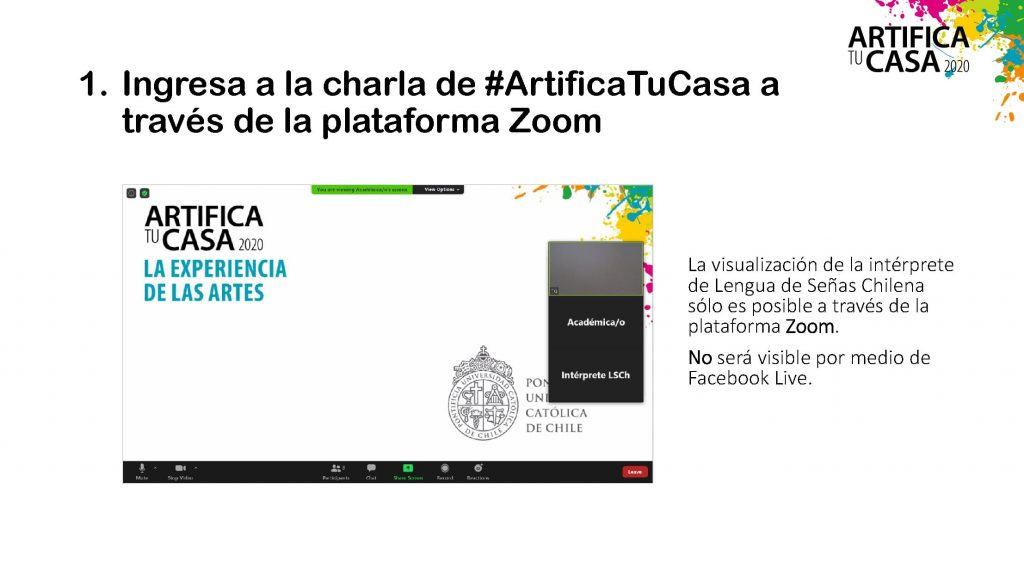
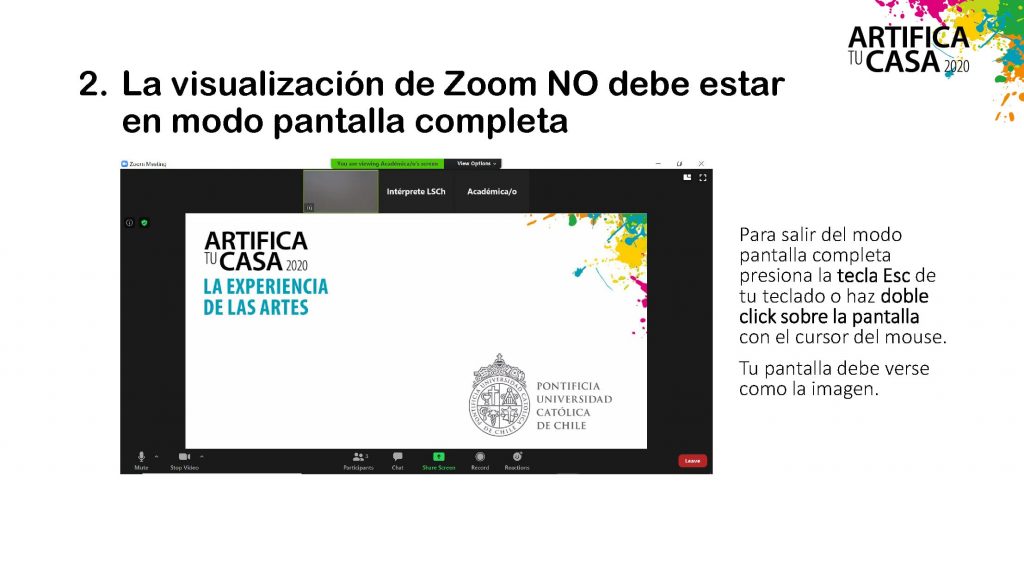
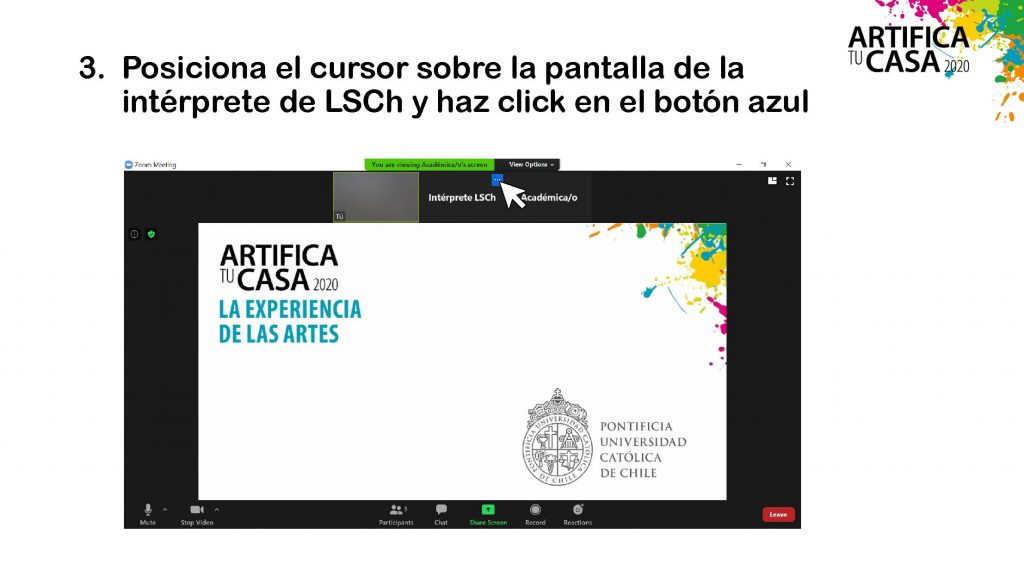
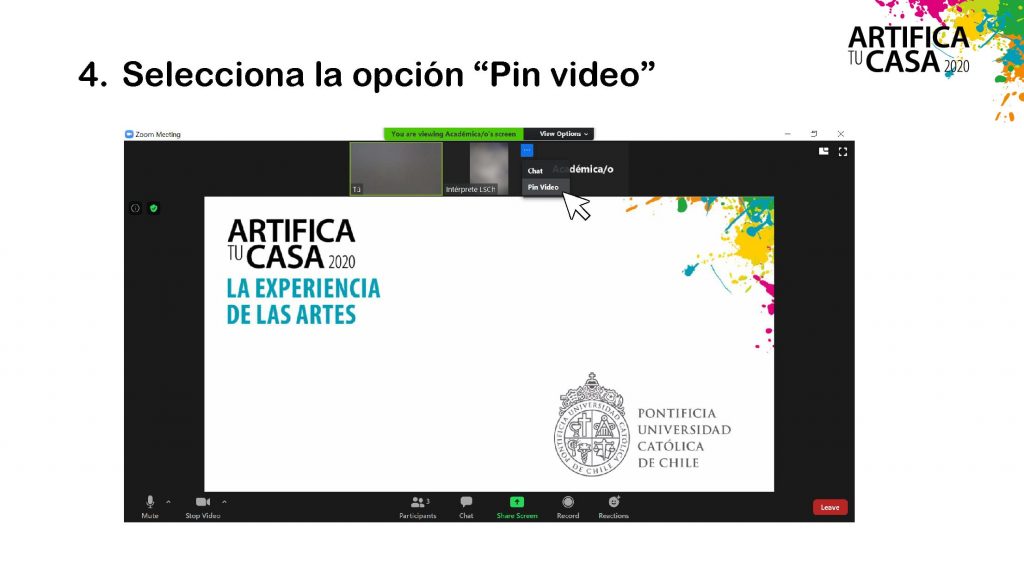
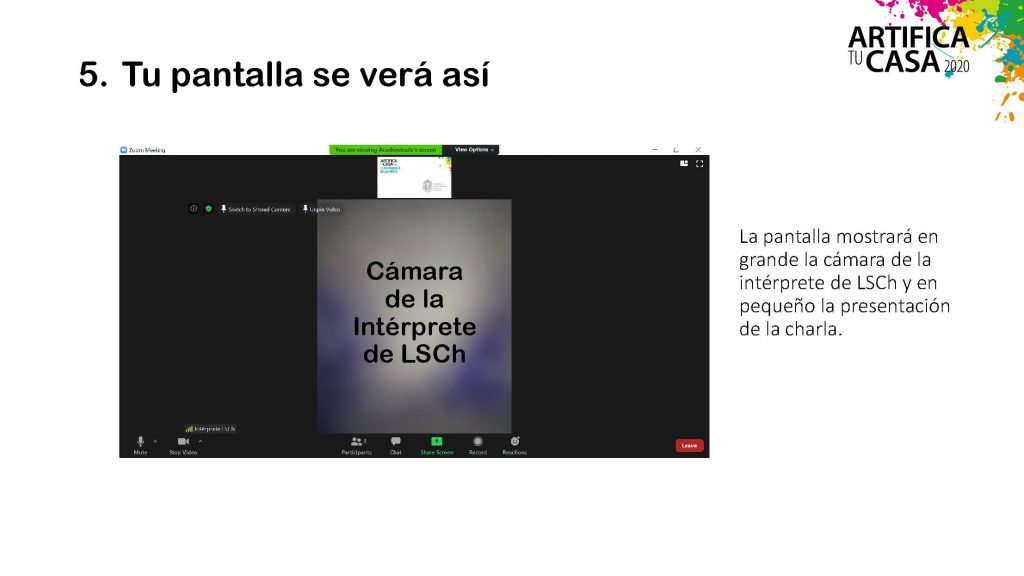
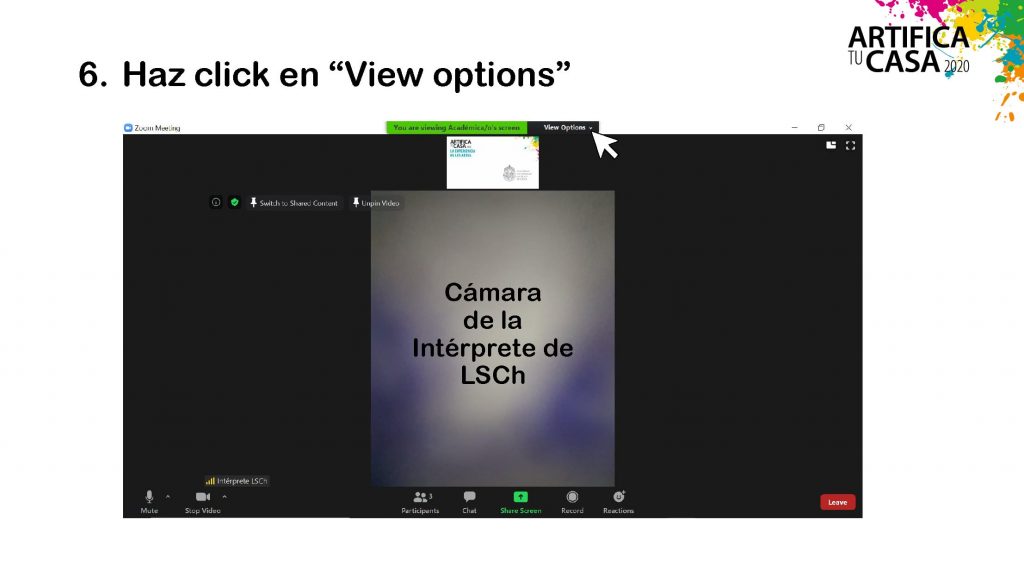
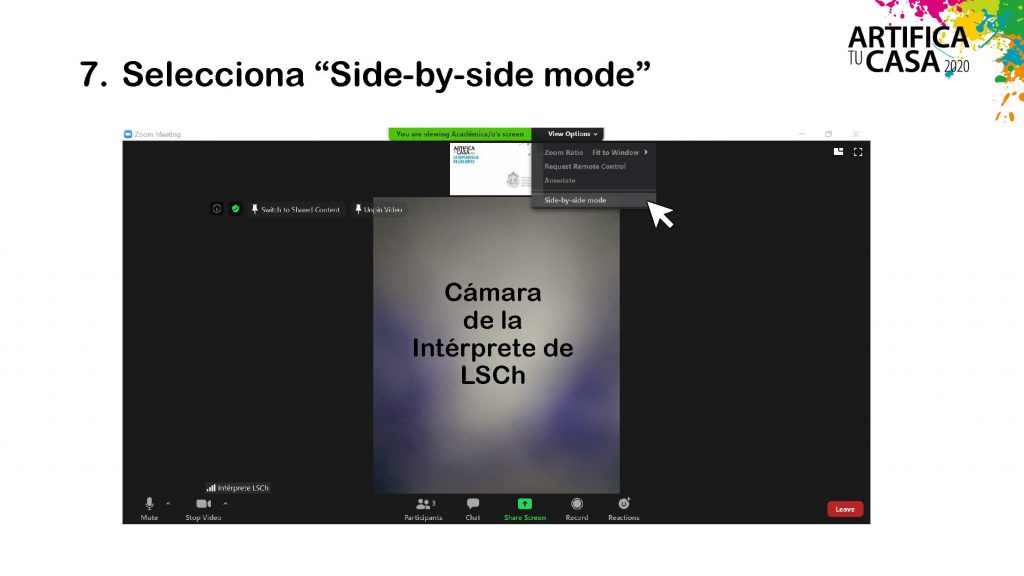
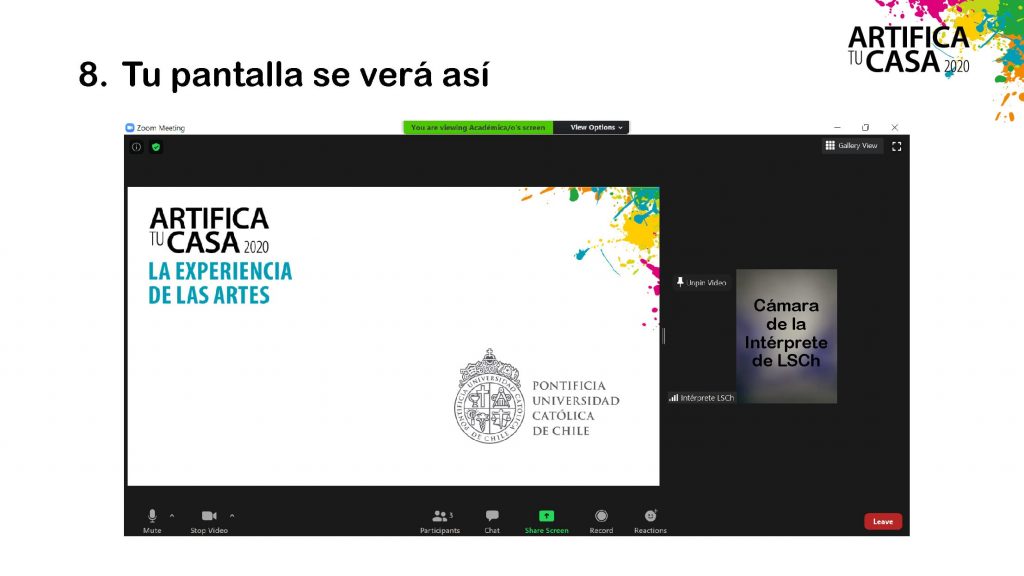
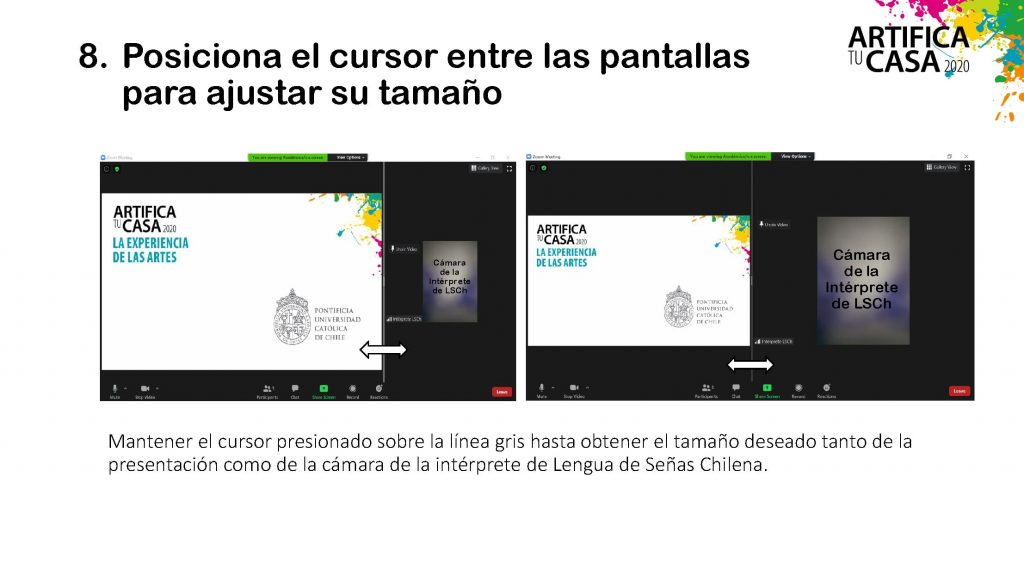
MIRYAM SINGER
Wednesday, August 26, 2020, 6:00 p.m.
The history of art recognizes a few child prodigies whose transition to adulthood did not always develop well. In Mozart’s case, one of the most gravitating factors of his disagreement with the experience of being an adult man was his relationship with women. There were some, whose imprint left often tragic traces in his life; his wife contributed largely to his emotional breakdown, and perhaps, to his early death. This talk explores how real and fictional women throw interesting insights on his unfulfilled wishes.
SEBASTIAN GRAY
Wednesday, August 19, 2020, 6:00 p.m.
The analysis of city plans allows us to deduce the origins of cities and their transformation over time. The persistence of an urban layout can resist wars, cataclysms and the passing of time. They are hieroglyphs that reveal overlays of historical events, while establishing the constants of the collective memory of a society.
ISABEL CRUZ
Wednesday, August 5, 2020, 6:00 p.m.
The millennial practice of collecting has been preserved throughout history and has helped to make visible an invaluable heritage of artistic assets to become visible. Collections have been housed in museums and cultural institutions that offer the dimension of the future incorporating the past. The collection of Hispano-American Colonial Art put together by Joaquín Gandarillas Infante (1930-2004), is currently in a loan regime at the Catholic University of Chile. It constitutes an interesting example of this practice in our country and has allowed the collection of a valuable set of works of painting, sculpture, silverware, and furniture. These are a testimony to the aesthetic and cultural miscegenation of the countries of the Andean South and their common history.
ANDREA JEFTANOVIC
Universidad de Santiago de Chile (USACH)
Miércoles 11 de agosto de 2021, 18:30 hrs.
Se tiende a asociar la literatura producida por mujeres con espacios cerrados, domésticos. Que las mujeres narradoras caminen y escriban sobre ese ejercicio o sobre la práctica de viajar, es ir en contra de la idea del cuarto propio o pensar un cuarto propio extraterritorial. ¿Por qué y en qué circunstancias caminan las mujeres escritoras? ¿Qué obstáculos enfrentan? ¿Cómo registran su paso por el espacio público? ¿cómo construyen el espacio las mujeres? ¿cómo la caminante registra la experiencia de desplazamiento? Se camina física y psicológicamente desde los inicios de la historia. Caminar es una actividad en la que se cruza la religión, la filosofía, el paisaje, la anatomía, el género, antropología, cultura, geografía (Solnit). Estamos acostumbrados a la figura del caminante, del flâneur, pero, también, existen las flâneuses. Autoras que han ejercitado el desplazamiento como hermenéutica literaria y estrategia cívica. El caminar implica enfrentarse a la presencia espectral del pasado y del futuro. Se camina para ir a los orígenes, para desviarse en el camino y reformular el destino. Escribir de viajes es dejar espacios en blanco. Hacer del caminar una metodología de meditación y de escritura. Andrea Jeftanovic compartirá, también, su propia experiencia como una narradora que sale de casa a caminar y a escribir sobre ciudades y fronteras ajenas.
—
Andrea Jeftanovic es escritora y ensayista. De primera formación socióloga y luego Doctora en Literatura Hispanoamericana de la Universidad de California en Berkeley (EE.UU.). Ha trabajado en la línea de la dramaturgia Latinoamérica, con especial énfasis en las autoras, narrativa de mujeres y en el campo de la memoria y pos memorias del Holocausto y las dictaduras del Cono Sur. Ha obtenido los premios Juegos literarios Gabriela Mistral, Consejo Nacional del Libro y la Lectura (2001), Círculo de Críticos de Arte de Chile, Pen Translate Award para la edición inglesa (Charco Press, 2020). Actualmente combina su labor literaria con su rol docente en la Facultad de Humanidades de la Universidad de Santiago de Chile, y como crítica de teatro y panelista en radio Usach.
FERNANDO PÉREZ
Wednesday, July 29, 2020, 6:00 p.m.
Unlike what happens with certain artistic experiences that demand a conscious will to attend, look or touch; asking us to go to a specific place to participate in them, we have a daily and almost inevitable relationship with architecture. Architecture surrounds us and meets us, to such an extent that it usually disappears from our attention. We ignore it, in the double sense of neither perceiving it or necessarily being aware of its experience. Efforts to produce architecture, sometimes in gigantic and even excessive ways, highlight awareness of how significant this intensification of construction has been for all cultures. Making our acts an art form has been an ambition as fascinating as it is risky.
VOLUSPA JARPA
Wednesday, July 22, 2020, 6:00 p.m.
In times of crisis, the certainties on which the stability of the worldview is based are weakened. We will see how this is reflected in artistic language and creativity. Artists elaborate on these epochal, subjective, and social discomforts as this conditions are one of the elements that trigger the need for expression. We will review cases in art history and contemporary times to think about how creativity can place us in the need to embrace new paradigms.
ANDRÉS KALAWSKI
Wednesday, July 15, 2020, 6:00 p.m.
At the end of the 19th century, theater, like many other disciplines, tried to become a perfectly rational scientific field. This movement meant abandoning traditions which seemed only mechanical repetition and pure superstition. By scrutinizing some of those traditions that we left behind, we can rethink the relationship between the intellect and the body.
CAROLINA URRUTIA
Wednesday, July 8, 2020, 6:00 p.m.
PABLO CHIUMINATTO
Wednesday, July 1, 2020, 6:00 p.m.
Responsibility for the current global crisis and the future of life on the planet represents a great challenge. Anthropic action (intentional, indirect, or negligent), reinforced by effectively natural factors -climate change, pandemic – represents an eloquent limit to the continuity of the current model of human civilization. For almost a century, the arts and humanities have raised different perspectives – critical and purposeful – about the impact of human life on the planet, as well as the possibility of imagining an alternative future to extractivism and the destruction of the environment.
CARMEN GLORIA LARENAS
Wednesday, June 24, 2020, 6:00 p.m.
English closed captioning available. Click "Settings" in bottom right corner of video.
PAOLO BORTOLAMEOLLI
Wednesday, June 17, 2020, 6:00 p.m.
What defines performing art? How can be the experience of live music be explained? Why is it not replaceable? Why is interpretation a phenomenon that also depends on factors linked to the here and now? It has been really fortunate in such difficult times to have technology as our best ally to continue nourishing ourselves with culture. But it is also time to excite and extend the invitation so that when all this is over we can experience this miracle of the LIVE again. That unique energy between what happens on and off the stage.
CONSTANZA ACUÑA
Universidad de Chile
Miércoles 4 de agosto de 2021, 18:30 hrs.
A partir del encuentro del libro Naturae Prodigium (1651 Madrid) del franciscano Pedro de Alva y Astorga, en la antigua biblioteca del convento de San Francisco de Santiago, descubriremos la relación entre dicho texto y la serie de 54 pinturas cusqueñas que se encuentra en el museo de la iglesia. En estas obras del siglo XVII se puede observar una concepción del tiempo no lineal, donde aparecen visiones del milenarismo cristiano, tensiones e intercambios entre la cultura mestiza y el orden virreinal.
¿Cuáles fueron los nuevos significados políticos y sociales que ponían en juego estas pinturas americanas? ¿Es posible ver hoy una continuidad de esos significados de la iconografía colonial -que fueron condenados duramente por la historiografía del siglo XIX- y nuestro modo de organizar las relaciones entre textos, conocimientos e imágenes? Son algunas de las preguntas que intentaremos responder.
—
Constanza Acuña es doctora en Historia del Arte por la Universidad de Bolonia y académica del Departamento de Teoría de las Artes de la Facultad de Artes de la Universidad de Chile. Sus principales líneas de investigación son la pintura colonial y su relación con la historia cultural y las teorías sobre el arte y la imagen barroca. Es autora y coautora de artículos y libros, entre ellos, La curiosidad infinita de Athanasius Kircher (Ocho Libros, 2012); Perspectivas sobre el coloniaje (2013, UAH); “La firma de Juan Zapaca Inga y los pájaros parlantes” (MNBA, 2017).
PABLO ALVARADO
Pontificia Universidad Católica de Valparaíso (PUCV)
Miércoles 18 de agosto de 2021, 18:30 hrs.
La sinfonía es un género que ha sido desarrollado por compositores e intérpretes por más de trescientos años. Desde sus orígenes durante el siglo XVIII, fue objeto de grandes transformaciones, desde la experimentación llevada adelante con F. J. Haydn, la perfección clásica con W. A. Mozart, los nuevos aires con L. van Beethoven, el ímpetu romántico con R. Schumann, hasta la eclosión del posromanticismo con Gustav Mahler. En esta charla se reflexionará acerca de este desarrollo sostenido y las posibilidades de que esto implique mantenerlo así hasta los siglos XX y XXI.
—
Pablo Alvarado es docente en el Instituto de Música de la Pontificia Universidad Católica de Valparaíso, en las cátedras de Práctica de Conjunto y Música de Cámara. Título de Profesor de Música PUCV (1980). Director Titular de la Orquesta de Cámara de la PUCV desde 1998 a la fecha. Licenciado en Dirección de Orquesta en el Instituto Superior de Arte de La Habana, Cuba (2008). Diplomado en Gestión Cultural otorgado por la Escuela de Periodismo de la PUCV (2011).
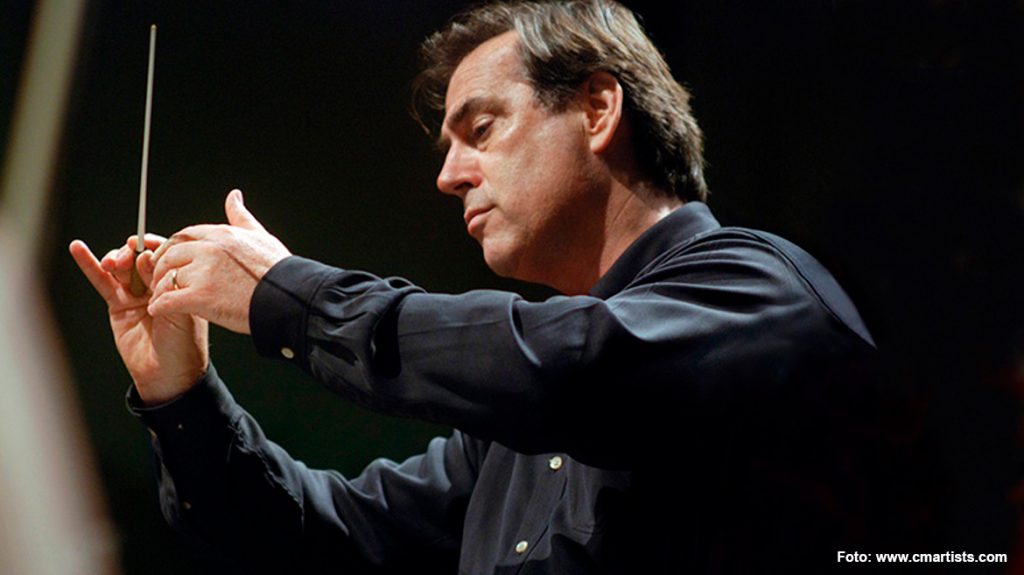
Miércoles 10 de agosto, 19hrs.
Graduado del Conservatorio Santa Cecilia en Roma, Maximiano Valdés es el más destacado director de orquesta chileno de su generación en el mundo. Comienza su carrera como director asistente del Teatro La Fenice, Venecia. En 1980 obtiene el primer premio en el Concurso Nikolai Malko para jóvenes directores, el primer premio en el Concurso Vittorio Gui en Florencia y el segundo premio en el concurso para directores organizado por la BBC de Londres.
Ha dirigido en Dinamarca, Finlandia, Noruega; en el Palais Garnier de París, Ópera de Bonn, Liceo de Barcelona, la Ópera de Roma, Venecia, Catania, Bolonia, Palermo. Ha dirigido a la Nouvel Philharmonique, la Orquesta de Lyon, Burdeos y Estrasburgo; la orquesta de Chicago, Baltimore, Seattle, San Francisco, Filadelfia, Indianapolis, Toronto y Montreal; la London Symphony, la London Philharmonic y la English Chamber Orchestra; la Orquesta Nacional de la Radio Polaca y la Orquesta Filarmónica de Varsovia; la Orquesta de la Ciudad de Barcelona, Orquesta de Radio Televisión Española y Sinfónicas de Bilbao, Málaga y Valencia; la Orquesta Filarmónica Ciudad de México, la Orquesta Simón Bolívar y la Sinfónica Nacional de Venezuela, entre otras.
Ha realizado grabaciones con las Orquestas Filarmónica y Sinfónica de Londres, la Orquesta Simón Bolívar de Caracas y la Orquesta Sinfónica Principado de Asturias, entre otras.
Ha sido director titular de la Orquesta Sinfónica Principado de Asturias, la Orquesta.Filarmónica de Buffalo, la Orquesta Sinfónica de Puerto Rico, la Orquesta de Euskadi, la Orquesta Filarmónica de Chile, y la Orquesta de la Fundación de Orquestas Juveniles e Infantiles de Chile, entre otras.
Conversa con JOSÉ MANUEL IZQUIERDO
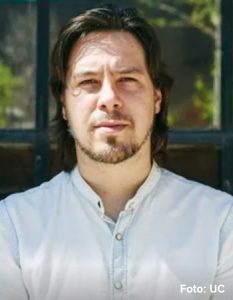
Profesor de musicología, con especialidad en el área de historia de la música. Su investigación se centra en el largo siglo XIX, con publicaciones en áreas como ópera, compositores, instrumentos y prácticas. En particular, su trabajo sobre compositores del área peruana, como José Bernardo Alzedo y Pedro Ximénez Abrill, ha tenido un importante impacto en el rescate del patrimonio musical de América del Sur.
Por su trabajo ha recibido diversos reconocimientos, incluyendo los premios Otto Mayer Serra de musicología, Ruspoli de musicología euro-latinoamericana, y Tosc@ de estudios transnacionales de ópera. Su tesis doctoral, financiada por la fundación Gates Cambridge, recibió el Premio Tesi Rossiniane de la Fundación Rossini, Italia. Por su aporte a la cultura local, en 2012 recibió el premio ProArte y medalla de la ciudad de su natal Valdivia.
Miércoles, 3 de agosto, 19hrs.
Graduado de la Escuela de Arquitectura de Universidad Católica en 1990, Mathias Klotz es uno de los más prominentes arquitectos chilenos de su generación. Su obra ha sido reconocida con el Premio Borromini de Arquitectura en 2001, el Green Good Design Award en 2010, el Holcim Award en 2011, el Premio Latinoamericano de Arquitectura Rogelio Salmona en 2014 y el premio Aporte Institucional a la Arquitectura dado por la Asociación de Oficinas de Arquitectura de Chile en 2015.
Es un connotado conferencista con presentaciones en Chile, México, Estados Unidos, España, Francia, Italia, Irlanda, Turquía y China, entre otros.
Su obra ha sido expuesta en Chile, Estados Unidos, España, Francia, Italia, Alemania, Australia, Japón, y sus trabajos han sido publicados en numerosas revistas internacionales de Arquitectura.
Tiene obra arquitectónica en Chile, Argentina, Uruguay, República Dominicana, España, Líbano y China
Ha tenido experiencia docente en Alemania, Argentina, Italia, México, y España, donde ha sido guest y visiting professor. Actualmente se desempeña como decano de la Facultad de Arquitectura de la Universidad Diego Portales.
Conversa con ALEJANDRA BOSCH

Docente del área de taller y representación de la Escuela de Arquitectura UC, tanto en pregrado como en el Magister en Arquitectura del Paisaje (MAPA). Se ha desempeñado como académica también en la Universidad Diego Portales y en la Architectural Association. Su área de investigación se ha centrado en la representación de infraestructura y paisaje como una ecología compleja. En el ámbito internacional ha dirigido diversos workshops como el Visiting School de la Architectural Association en México, el taller de paisaje en la Universidad DiTella en Argentina, y el Archiprix en Chile (2019). Ha sido profesora invitada de la Architectural Association en Londres. Ha trabajado en proyectos de Arquitectura del paisaje, urbanismo y arquitectura en Chile, China, Dubai, Qatar, Reino Unido, destacándose el proyecto de Longgang City en China para Groundlab.
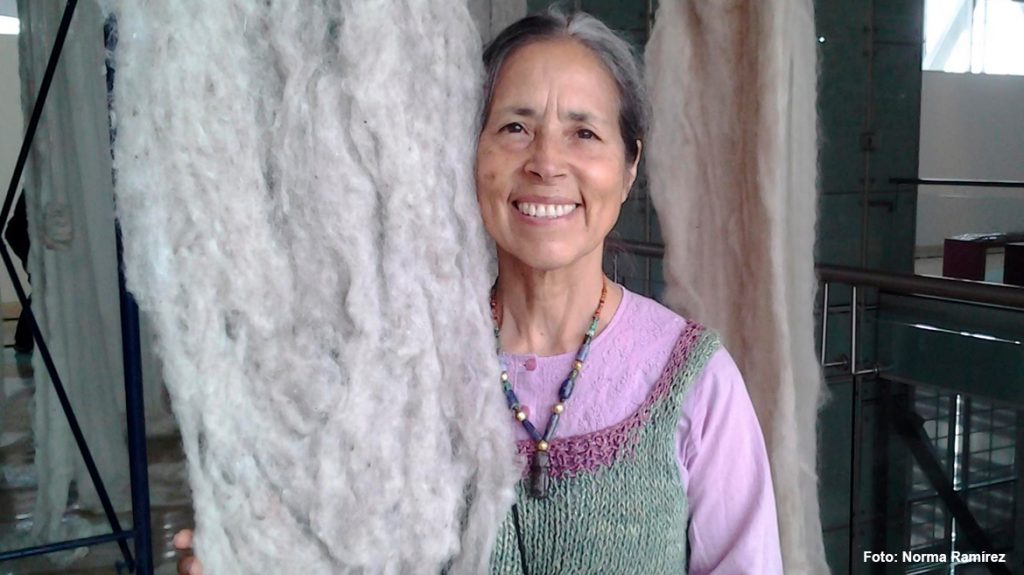
Miércoles 17 de agosto, 19hrs.
La más destacada artista chilena en el mundo de las artes visuales, Cecilia Vicuña es también una reconocida poeta, cineasta y activista cuya práctica incluye las más variadas categorías artísticas, incluyendo el arte precario, la performance, el arte conceptual, el site specific y el land art, entre otros. Su trayectoria comienza en los años 60 cuando anticipa los movimientos feministas, indigenistas, decolonialistas y ambientalistas que comenzarían a instalarse en el escenario artístico under dos décadas después y eclosionarían en el establishment artístico cuatro décadas más tarde.
Sus obras forman parte de las colecciones del Salomon Guggenheim Museum y el MoMa de Nueva York, el Tate Modern de Londres, el Museum of fine Arts de Boston, el Pérez Art Museum de Miami, el Museo de Arte Latinoamericano de Buenos Aires, el Museo Mali de Lima, y el Museo Nacional de Bellas Artes de Santiago, entre otros.
Se ha presentado en las más importantes instituciones de Latinoamérica, Estados Unidos y Europa incluida la Documenta 14 en Kassel y Atenas. Ha recibido el Premio Velázquez de las Artes Plásticas en España, el Herb Alpert Award de Artes Visuales, el Premio United States Artists, el premio Grants & Commissions Program, que entrega The Cisneros Fontanals Art Foundation, el Poet Sherry Memorial 2018, en Residencia del Programa de Poesía y Poética de la Universidad de Chicago, y en 2022 recibió el León de Oro a la trayectoria en la Bienal de Arte de Venecia.
Su obra poética y cinematográfica rebela su capacidad de expandir la voz creativa más allá de todo límite, transformándola en una protagonista ineludible del arte en el mundo actual
Conversa con VOLUSPA JARPA
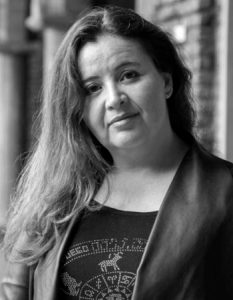
Licenciada en Arte Universidad de Chile, es una de las más destacadas artistas chilenas de su generación. Su obra artística comienza en los años 90 con la pintura y la escultura, evolucionando hacia el ensayo convertido en instalación. Sus exposiciones individuales incluyen L´Effet Charcot, Maison de la Amerique Latine, Paris(2010); Minimal Secret, Feria Arco, Madrid(2012); Secret Sensitive- Eyes Only, Mor Charpentier Galerie, París(2013); Litempo, Zona Maco, México DF(2013); Serie De los Artilugios Cotidianos, ArteBA, Buenos Aires (2014); Diversões Publicas, Galería Isabel Aninat, SP Arte, São Paulo (2014); En Nuestra Pequeña Región de por acá, Mor Charpentier Galerie, Archivo Nacional de Bogotá, Bogotá(2014); En Nuestra Pequeña Región de por acá– MALBA 2016, Museo de Arte Latinoamericano de Buenos Aires- MALBA, entre otros.
En 2020 ganó el Premio Julius Baer a las artistas latinoamericanas.
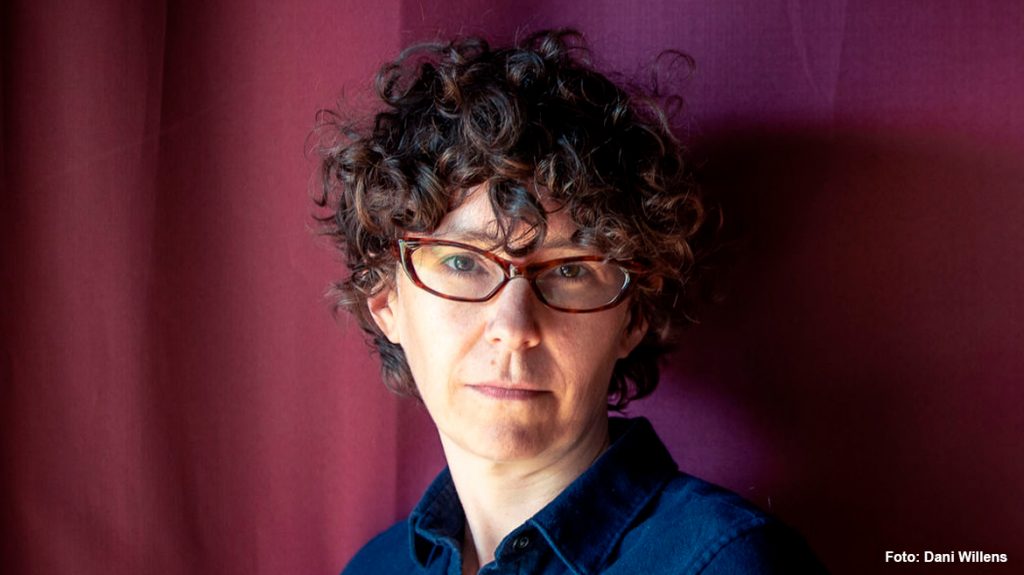
Miércoles 31 de agosto, 19hrs.
Actriz, música, dramaturga y directora, Manuela Infante es una de las artistas más celebradas -y controversiales- de la escena teatral chilena.
Con una Licenciatura en Artes en la Universidad de Chile, viajó a Amsterdam para estudiar un magíster en Análisis Cultural, A los 22 años incursionó en la dramaturgia y la dirección con una de las obras más polémicas de la era post dictadura, generando airadas reacciones en el estamento político. A partir de ese momento Manuela Infante dirige a la compañía Teatro Chile en innumerables obras que la posicionaron como una creadora que trasciende las materialidades de la escena teatral A partir de 2015 se separa de la compañía y prosigue en forma independiente para ensayar nuevas perspectivas en su búsqueda de los límites del teatro.
Su extraordinario talento la impulsa a convertir cada obra en un ensayo sobre los temas que la conmueven, especialmente la relectura de los paradigmas que han dado forma a la identidad y la historia de Chile. Para lograrlo Manuela Infante emplea un abanico de plataformas artísticas, dentro de las cuales se mueve con total soltura y virtuosismo, como la música y la audiovisualidad.
Su metodología de trabajo ha sido motor y excusa para experimentar en la investigación profunda de las relaciones entre la realidad y la representación teatral, arrojando nuevas luces sobre la subjetividad y los bordes concretos de la vida humana.
Su carrera en permanente ascenso la ha colocado en la escena teatral mundial, con obras presentadas Alemania, Bélgica, Holanda, Irlanda, España, Italia, Suiza, Estados Unidos, Singapur, Corea, Japón, Uruguay, Perú, México, Argentina y Brasil.
Conversa con ANA LUZ ORMAZÁBAL
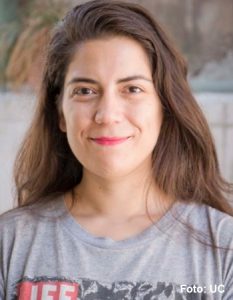
Actriz de la Universidad Católica y Magister en Performance Practice and Research en The Royal Central School of Speech and Drama, Londres..
Directora del ANTIMÉTODO – práctica de investigación y creación escénica que cuenta con los proyectos: “Concierto” (2012), “Agnetha Kurtz Roca Method” (2015), “Ópera” (2016), “La magnitud del momento” (2019, co-creación con Escénica en Movimiento), “Al Pacino” (2019). Directora de “Tarde de Verano” (2016) Asistente creativa en «Éxodo» (2017) proyecto dirigido por Manuela Infante. Asiste al Edinburg Fringe Festival (2017) en la comitiva chilena Realiza residencias artísticas en The Watermill Center (EE.UU, NY), NAVE (STGO, CH), Dartmouth & New York Theater Workshop (EE.UU, BOS) y fue seleccionada para el 2021 International Forum del Theatertreffen 2020 Berliner Festspiele.
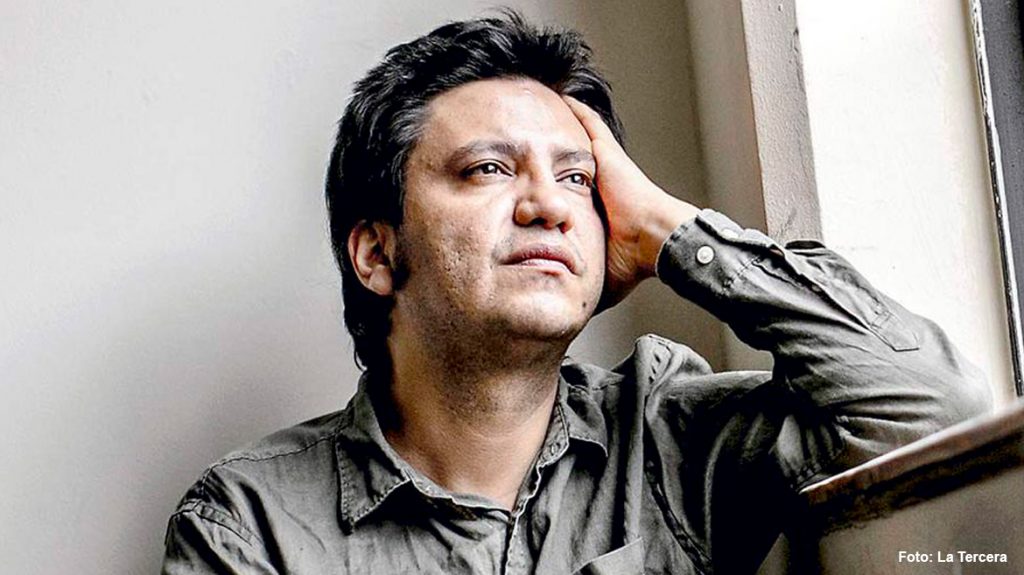
Miércoles 31 de agosto, 19hrs.
Con una presencia permanentemente en las listas de los escritores chilenos más destacados de su generación, Alejandro Zambra comenzó su historia con las letras desde la poesía. Después de una Licenciatura en Letras Hispánicas de la Universidad de Chile, viajó a Madrid para estudiar filología hispánica retornando a Chile para hacer su doctorado en la Universidad Católica.
A los 31 años publica su primera novela, Bonsai, causando un impacto formidable en el ambiente literario de los primeros años del siglo XXI. Sus novelas La vida privada de los peces, de 2007, Formas de volver a casa de 2011 terminan de instalarlo como una de las plumas más sobresalientes en Latinoamérica.
En 2014 publica su cuarta novela Facsimil, y en 2020 publica su más reciente novela, Poeta Chileno.
Ha colaborado como crítico literario y columnista en los principales medios escritos en Chile y también en España, Italia y México. Algunos de sus cuentos han sido publicados por revistas tan prestigiosas como The New Yorker, The Paris Review y Harper´s. entre otras, y su novela Bonsai apareció en la lista de los mejores libros traducidos al inglés de 2008.
Dos de sus obras han sido llevadas al cine y ha recibido numerosos premios y reconocimientos en Chile y el extranjero
Sus novelas han sido traducidas a más de veinte idiomas, incluido el japonés.
Actualmente reside en México con su esposa, la escritora mexicana Jazmina Barrera y su pequeño hijo Silvestre.
Conversa con MARÍA JOSÉ NAVIA
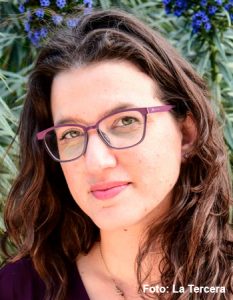
María José Navia es magíster en Humanidades y Pensamiento Social por la universidad de Nueva York (NYU), doctora en Literatura y Estudios Culturales por la universidad de Georgetown, y es profesora en la Facultad de Letras de la Pontificia Universidad Católica de Chile. Sus libros más recientes son Lugar (Finalista del Premio Municipal de Literatura), Kintsugi, Una música futura (ganador del concurso Mejores Obras Literarias y finalista del Premio Municipal de literatura) y El mapa secreto de las cosas (Premio Medalla Colibrí IBBY Chile). Ha grabado la versión audiolibro de tres de sus obras para las plataformas Leolento, Storytel y Scribd. El año 2022 fue seleccionada como una de las cinco finalistas del Premio Internacional Ribera del Duero con su libro de cuentos inédito Todo lo que aprendimos de las películas.
Miércoles 24 de agosto, 19hrs.
Con una presencia permanentemente en las listas de los escritores chilenos más destacados de su generación, Alejandro Zambra comenzó su historia con las letras desde la poesía. Después de una Licenciatura en Letras Hispánicas de la Universidad de Chile, viajó a Madrid para estudiar filología hispánica retornando a Chile para hacer su doctorado en la Universidad Católica.
A los 31 años publica su primera novela, Bonsai, causando un impacto formidable en el ambiente literario de los primeros años del siglo XXI. Sus novelas La vida privada de los peces, de 2007, Formas de volver a casa de 2011 terminan de instalarlo como una de las plumas más sobresalientes en Latinoamérica.
En 2014 publica su cuarta novela Facsimil, y en 2020 publica su más reciente novela, Poeta Chileno.
Ha colaborado como crítico literario y columnista en los principales medios escritos en Chile y también en España, Italia y México. Algunos de sus cuentos han sido publicados por revistas tan prestigiosas como The New Yorker, The Paris Review y Harper´s. entre otras, y su novela Bonsai apareció en la lista de los mejores libros traducidos al inglés de 2008.
Dos de sus obras han sido llevadas al cine y ha recibido numerosos premios y reconocimientos en Chile y el extranjero
Sus novelas han sido traducidas a más de veinte idiomas, incluido el japonés.
Actualmente reside en México con su esposa, la escritora mexicana Jazmina Barrera y su pequeño hijo Silvestre.
Conversa con MARÍA JOSÉ NAVIA

María José Navia es magíster en Humanidades y Pensamiento Social por la universidad de Nueva York (NYU), doctora en Literatura y Estudios Culturales por la universidad de Georgetown, y es profesora en la Facultad de Letras de la Pontificia Universidad Católica de Chile. Sus libros más recientes son Lugar (Finalista del Premio Municipal de Literatura), Kintsugi, Una música futura (ganador del concurso Mejores Obras Literarias y finalista del Premio Municipal de literatura) y El mapa secreto de las cosas (Premio Medalla Colibrí IBBY Chile). Ha grabado la versión audiolibro de tres de sus obras para las plataformas Leolento, Storytel y Scribd. El año 2022 fue seleccionada como una de las cinco finalistas del Premio Internacional Ribera del Duero con su libro de cuentos inédito Todo lo que aprendimos de las películas.
Miércoles 31 de agosto, 19hrs.
Actriz, música, dramaturga y directora, Manuela Infante es una de las artistas más celebradas -y controversiales- de la escena teatral chilena.
Con una Licenciatura en Artes en la Universidad de Chile, viajó a Amsterdam para estudiar un magíster en Análisis Cultural, A los 22 años incursionó en la dramaturgia y la dirección con una de las obras más polémicas de la era post dictadura, generando airadas reacciones en el estamento político. A partir de ese momento Manuela Infante dirige a la compañía Teatro Chile en innumerables obras que la posicionaron como una creadora que trasciende las materialidades de la escena teatral A partir de 2015 se separa de la compañía y prosigue en forma independiente para ensayar nuevas perspectivas en su búsqueda de los límites del teatro.
Su extraordinario talento la impulsa a convertir cada obra en un ensayo sobre los temas que la conmueven, especialmente la relectura de los paradigmas que han dado forma a la identidad y la historia de Chile. Para lograrlo Manuela Infante emplea un abanico de plataformas artísticas, dentro de las cuales se mueve con total soltura y virtuosismo, como la música y la audiovisualidad.
Su metodología de trabajo ha sido motor y excusa para experimentar en la investigación profunda de las relaciones entre la realidad y la representación teatral, arrojando nuevas luces sobre la subjetividad y los bordes concretos de la vida humana.
Su carrera en permanente ascenso la ha colocado en la escena teatral mundial, con obras presentadas Alemania, Bélgica, Holanda, Irlanda, España, Italia, Suiza, Estados Unidos, Singapur, Corea, Japón, Uruguay, Perú, México, Argentina y Brasil.
Conversa con ANA LUZ ORMAZÁBAL

Actriz de la Universidad Católica y Magister en Performance Practice and Research en The Royal Central School of Speech and Drama, Londres..
Directora del ANTIMÉTODO – práctica de investigación y creación escénica que cuenta con los proyectos: “Concierto” (2012), “Agnetha Kurtz Roca Method” (2015), “Ópera” (2016), “La magnitud del momento” (2019, co-creación con Escénica en Movimiento), “Al Pacino” (2019). Directora de “Tarde de Verano” (2016) Asistente creativa en «Éxodo» (2017) proyecto dirigido por Manuela Infante. Asiste al Edinburg Fringe Festival (2017) en la comitiva chilena Realiza residencias artísticas en The Watermill Center (EE.UU, NY), NAVE (STGO, CH), Dartmouth & New York Theater Workshop (EE.UU, BOS) y fue seleccionada para el 2021 International Forum del Theatertreffen 2020 Berliner Festspiele.
Miércoles 17 de agosto, 19hrs.
La más destacada artista chilena en el mundo de las artes visuales, Cecilia Vicuña es también una reconocida poeta, cineasta y activista cuya práctica incluye las más variadas categorías artísticas, incluyendo el arte precario, la performance, el arte conceptual, el site specific y el land art, entre otros. Su trayectoria comienza en los años 60 cuando anticipa los movimientos feministas, indigenistas, decolonialistas y ambientalistas que comenzarían a instalarse en el escenario artístico under dos décadas después y eclosionarían en el establishment artístico cuatro décadas más tarde.
Sus obras forman parte de las colecciones del Salomon Guggenheim Museum y el MoMa de Nueva York, el Tate Modern de Londres, el Museum of fine Arts de Boston, el Pérez Art Museum de Miami, el Museo de Arte Latinoamericano de Buenos Aires, el Museo Mali de Lima, y el Museo Nacional de Bellas Artes de Santiago, entre otros.
Se ha presentado en las más importantes instituciones de Latinoamérica, Estados Unidos y Europa incluida la Documenta 14 en Kassel y Atenas. Ha recibido el Premio Velázquez de las Artes Plásticas en España, el Herb Alpert Award de Artes Visuales, el Premio United States Artists, el premio Grants & Commissions Program, que entrega The Cisneros Fontanals Art Foundation, el Poet Sherry Memorial 2018, en Residencia del Programa de Poesía y Poética de la Universidad de Chicago, y en 2022 recibió el León de Oro a la trayectoria en la Bienal de Arte de Venecia.
Su obra poética y cinematográfica rebela su capacidad de expandir la voz creativa más allá de todo límite, transformándola en una protagonista ineludible del arte en el mundo actual
Conversa con VOLUSPA JARPA

Licenciada en Arte Universidad de Chile, es una de las más destacadas artistas chilenas de su generación. Su obra artística comienza en los años 90 con la pintura y la escultura, evolucionando hacia el ensayo convertido en instalación. Sus exposiciones individuales incluyen L´Effet Charcot, Maison de la Amerique Latine, Paris(2010); Minimal Secret, Feria Arco, Madrid(2012); Secret Sensitive- Eyes Only, Mor Charpentier Galerie, París(2013); Litempo, Zona Maco, México DF(2013); Serie De los Artilugios Cotidianos, ArteBA, Buenos Aires (2014); Diversões Publicas, Galería Isabel Aninat, SP Arte, São Paulo (2014); En Nuestra Pequeña Región de por acá, Mor Charpentier Galerie, Archivo Nacional de Bogotá, Bogotá(2014); En Nuestra Pequeña Región de por acá– MALBA 2016, Museo de Arte Latinoamericano de Buenos Aires- MALBA, entre otros.
En 2020 ganó el Premio Julius Baer a las artistas latinoamericanas.
Miércoles 10 de agosto, 19hrs.
Graduado del Conservatorio Santa Cecilia en Roma, Maximiano Valdés es el más destacado director de orquesta chileno de su generación en el mundo. Comienza su carrera como director asistente del Teatro La Fenice, Venecia. En 1980 obtiene el primer premio en el Concurso Nikolai Malko para jóvenes directores, el primer premio en el Concurso Vittorio Gui en Florencia y el segundo premio en el concurso para directores organizado por la BBC de Londres.
Ha dirigido en Dinamarca, Finlandia, Noruega; en el Palais Garnier de París, Ópera de Bonn, Liceo de Barcelona, la Ópera de Roma, Venecia, Catania, Bolonia, Palermo. Ha dirigido a la Nouvel Philharmonique, la Orquesta de Lyon, Burdeos y Estrasburgo; la orquesta de Chicago, Baltimore, Seattle, San Francisco, Filadelfia, Indianapolis, Toronto y Montreal; la London Symphony, la London Philharmonic y la English Chamber Orchestra; la Orquesta Nacional de la Radio Polaca y la Orquesta Filarmónica de Varsovia; la Orquesta de la Ciudad de Barcelona, Orquesta de Radio Televisión Española y Sinfónicas de Bilbao, Málaga y Valencia; la Orquesta Filarmónica Ciudad de México, la Orquesta Simón Bolívar y la Sinfónica Nacional de Venezuela, entre otras.
Ha realizado grabaciones con las Orquestas Filarmónica y Sinfónica de Londres, la Orquesta Simón Bolívar de Caracas y la Orquesta Sinfónica Principado de Asturias, entre otras.
Ha sido director titular de la Orquesta Sinfónica Principado de Asturias, la Orquesta.Filarmónica de Buffalo, la Orquesta Sinfónica de Puerto Rico, la Orquesta de Euskadi, la Orquesta Filarmónica de Chile, y la Orquesta de la Fundación de Orquestas Juveniles e Infantiles de Chile, entre otras.
Conversa con JOSÉ MANUEL IZQUIERDO

Profesor de musicología, con especialidad en el área de historia de la música. Su investigación se centra en el largo siglo XIX, con publicaciones en áreas como ópera, compositores, instrumentos y prácticas. En particular, su trabajo sobre compositores del área peruana, como José Bernardo Alzedo y Pedro Ximénez Abrill, ha tenido un importante impacto en el rescate del patrimonio musical de América del Sur.
Por su trabajo ha recibido diversos reconocimientos, incluyendo los premios Otto Mayer Serra de musicología, Ruspoli de musicología euro-latinoamericana, y Tosc@ de estudios transnacionales de ópera. Su tesis doctoral, financiada por la fundación Gates Cambridge, recibió el Premio Tesi Rossiniane de la Fundación Rossini, Italia. Por su aporte a la cultura local, en 2012 recibió el premio ProArte y medalla de la ciudad de su natal Valdivia.
MIRYAM SINGER
Pontificia Universidad Católica de Chile (UC)
Wednesday, August 25, 2021, 6:30 p.m.
In the genre of opera, children have had a presence that extends from the seventeenth century to today. In this talk, we will review some operas that include them and we will try to analyze the benefit that their participation in this type of musical theater can mean for their cognitive, emotional and social development. We will visit two recent experiences of opera for children and opera with children through their own voices, and we will try to examine in what ways the opportunity to approach an opera has impacted their later life.
—
Miryam Singer is a full professor at the Pontificia Universidad Católica de Chile. She is an architect from Universidad de Chile, singer and Opera director. She has won several Critics’ Awards, APES, and the Chilean Academy of Fine Arts Award. In her opera productions, she is in charge of the regie, the set design, costumes and lighting, and the production of visuals that accompany the staging. She is currently the Director of Arts and Culture at Pontificia Universidad Catóica de Chile and teaches the Opera Workshop at the UC Institute of Music. She won the 2020 National Musical Arts Award of Chile.
MIRYAM SINGER
Pontificia Universidad Católica de Chile (UC)
Miércoles 25 de agosto de 2021, 18:30 hrs.
En el género de la ópera los niños han tenido una presencia que se extiende desde el siglo XVII hasta hoy. En esta charla revisaremos algunas óperas que los incluyen e intentaremos analizar el beneficio que su participación en este tipo de teatro musical puede significar para su desarrollo cognitivo, emocional y social. Visitaremos dos experiencias recientes de ópera para niños y de ópera con niños a través de sus propias voces, e intentaremos examinar de qué maneras la oportunidad de acercarse a una ópera ha impactado en su vida posterior.
—
Miryam Singer es profesora titular de la Pontificia Universidad Católica de Chile. Es arquitecto de la Universidad de Chile, cantante y directora de Ópera. Ha ganado varios premios de la Crítica, APES, y el premio de la Academia Chilena de Bellas Artes. En sus producciones de ópera se encarga de la regie, el diseño de escenografía, vestuario e iluminación, y la producción de visuales que acompañan la puesta en escena. Actualmente es la Directora de Artes y Cultura de la Universidad Católica y enseña el Taller de Ópera en el Instituto de Música UC. Es Premio Nacional de Artes Musicales 2020.
PABLO ALVARADO
Pontificia Universidad Católica de Valparaíso (PUCV)
Wednesday, August 18, 2021, 6:30 p.m.
The symphony is a genre developed by composers and performers for more than three hundred years. From its origins during the 18th century, it had great transformations. From the experimentation carried out with FJ Haydn, the classical perfection with WA Mozart, the new airs with L. van Beethoven, the romantic impetus with R. Schumann, until the emergence of post-romanticism with Gustav Mahler. This talk will reflect on this sustained development and the possibilities that imply keeping it that way until the 20th and 21st centuries.
—
Pablo Alvarado is a professor at the Institute of Music of Pontificia Universidad Católica de Valparaíso (PUCV), in the lectureships of Ensemble Practice and Chamber Music. He has the Degree of Music Teacher from the PUCV (1980). Titular Director of the PUCV Chamber Orchestra from 1998 thus far. He holds a Bachelor degree in Orchestra Conducting at the Higher Institute of Art of Havana, Cuba (2008). He also has a postgraduate Diploma in Cultural Management from the PUCV School of Journalism (2011).
ANDREA JEFTANOVIC
Universidad de Santiago de Chile (USACH)
Wednesday, August 11, 2021, 6:30 p.m.
Literature produced by women tends to be associated with closed, domestic spaces. For women narrators to walk and write about this exercise or about the practice of traveling, is to go against the idea of their own room or to think of their own extraterritorial room. Why and in what circumstances do women writers walk? What obstacles do they face? How do they record their passage through public space? How do women build space? How does the walker record the experience of displacement? It has been walking physically and psychologically since the beginning of history. Walking is an activity that crosses religion, philosophy, landscape, anatomy, gender, anthropology, culture, geography (Solnit). We are used to the figure of the walker, the flâneur, but there are also the flâneuses. Authors who have exercised displacement as a literary hermeneutic and civic strategy. Walking implies facing the spectral presence of the past and the future. You walk to go to the origins, to deviate on the path and reformulate the destination. Writing about travel is leaving blank spaces. Make walking a meditation and writing methodology. Andrea Jeftanovic will also share her own experience as a storyteller who leaves home to walk and write about foreign cities and borders.
—
Andrea Jeftanovic is a writer and essayist. She did her undergraduate studies in Sociology and then a PhD in Hispanic American Literature from the University of California at Berkeley (USA). She has worked on the topic of Latin American dramaturgy, with special emphasis on female authors, women’s narratives and in the field of memory and post-memories of the Holocaust and the dictatorships of the Southern Cone. She has obtained the Gabriela Mistral Literary Games, National Book and Reading Council (2001), Chilean Art Critics Circle, Pen Translate Award for the English edition (Charco Press, 2020). She currently combines her literary work with her teaching role at the Faculty of Humanities of the University of Santiago de Chile, and as a theater critic and panellist on radio Usach.
CONSTANZA ACUÑA
Universidad de Chile
Wednesday, August 4, 2021, 6:30 p.m.
From the meeting of the book Naturae Prodigium (1651 Madrid) by the Franciscan Pedro de Alva y Astorga, in the old library of the San Francisco de Santiago convent, we will discover the relationship between this text and the series of 54 Cusco paintings found in the church museum. In these seventeenth century works a non-linear conception of time can be observed, where visions of Christian millenarianism appear, tensions and exchanges between the mestizo culture and the viceregal order.
What were the new political and social meanings that these American paintings brought into play? Is it possible to see today a continuity of those meanings of colonial iconography -which were harshly condemned by the historiography of the 19th century- and our way of organizing the relationships between texts, knowledge and images? These are some of the questions that we will try to answer.
Constanza Acuña has a doctorate in Art History from the University of Bolonia and an academic in the Department of Theory of Arts of the Faculty of Arts of the University of Chile. Her main lines of research are colonial painting and its relationship with cultural history and theories about baroque art and image. She is the author and co-author of articles and books, including La curiosidad infinita de Athanasius Kircher (Ocho Libros, 2012); Perspectivas sobre el coloniaje (2013, UAH); “La firma de Juan Zapaca Inga y los pájaros parlantes” (MNBA, 2017).
HELENA HORTA
Universidad Católica del Norte
Wednesday, July 28, 2021, 6:30 p.m.
We know from the chronicles of the Conquest period that the camelid fiber loomed textile occupied a prominent place in the life of pre-Hispanic societies in the Andes zone, which is why it has been called “major art.” The textile clothing of the Arica culture reaches its greatest splendor during the Late Intermediate period (1000-1500 AD), giving identity to the ancient settlers of the Azapa valley and the coast of Arica. This talk will reveal technical and design aspects, along with exposing the identity and ritual implications that these garments presented.
Helena Horta is an Archaeologist and Art Historian (1981) and a Doctor in History with a Mention in Ethnohistory from the University of Chile (2010). She is dedicated to the investigation of pre-Hispanic art and archeology of the central-southern Andean area, with special emphasis on the visual systems of the various cultural developments of the Great North of Chile. On these issues, she has published scientific articles since the 90s, disseminating the results of research carried out with financing from competitive funds (CONICYT / FONDECYT). In terms of teaching, she has taught undergraduate and graduate classes at different universities. Since 2011, she has been an academic at the Institute of Archaeological Research and R.P. Gustavo Le Paige s.j. from the Universidad Católica del Norte, in San Pedro de Atacama.
EDWARD ROJAS
Universidad Austral
Wednesday, July 21, 2021, 6:30 p.m.
The wooden architecture of the land, the sea and the edge of the Chiloé Archipelago is a spiritual, material and technological expression of the historical and cultural memory of its inhabitants and navigators. It is flexible and versatile, it can accommodate various forms and programs. It is fragile because it deforms over time, it is perishable when affected by rain, fungi, xylophages, and fires, and it is also eclectic. As in a collage, it unites the new and the old, the own and the foreign. The architecture of the wood of the land and the sea of the Chiloé Archipelago is a living heritage, a continuum and a millenary cultural palimpsest, in which our work, which seeks to unite past and future, is only a whisper.
—
Edward Rojas Vega (1951), architect, academic and visual artist, born in the Atacama desert, has lived for 44 years on the Island of Chiloé. He co-founder of the mythical “Taller Puertazul”, author of a fertile theoretical and sustainable architectural production of universal interest. He is co-author of the books “The island recycling”, “Chiloé Architecture Guide”, “Palafitos de Castro, Chiloé” and “An architecture of the place”. In 2015 he was appointed “Extraordinary Professor” at the Austral University of Chile, a house of studies in which he currently teaches master’s classes, as well as at the Central University and Santiago de Chile. ISTHMUS Workshop Professor in Panama. Among his distinctions, the following stand out: the Andrea Palladio International Award selection, “Outstanding Teacher Medal 15 years of ISTHMUS”; Ensamble Award 2015; Chiloé Award for Cultural Extension, and National Architecture Award 2016.
PATRICIA HENRÍQUEZ
Universidad de Concepción
Wednesday, July 14, 2021, 6:30 p.m.
The Mesoamerican and Andean fiesta have been the fundamental framework for the cyclic restoration of a diverse repertoire of performing practices that go through songs, dances, movements and gestures. They concentrate on the body and communal memory. They demand presence and participation, contemporaneity and co-spatiality among those who create, receive and participate in them. The repertoire restores what the speech silences and has not been able to be ordered by the verbal sense (Cornago, 2003).
—
Patricia Henríquez Puentes has a PhD in Latin American Literature. Currently, she is the Director of the Spanish Department of the Humanities and Arts Faculty of the Universidad de Concepción, Chile. She is a professor of Literature in the undergraduate and postgraduate programmes of this University. She coordinates the Research Group Lenguajes Escénicos: Teatro (Performing Languages: Theater). Her research focuses on Chilean Theater and Latin American performing practices related to indigenous roots.
JOEL POBLETE
Universidad del Desarrollo (UDD)
Wednesday, July 7, 2021, 6:00 p.m.
In an accelerated way, the way in which we see and consume audiovisuals has changed in serveral aspects in the last two decades. The transition between traditional and digital media, new formats and platforms, the quick generational change, the dynamism of opinion on social networks, the rise of series: all this is part of a constantly changing and evolving landscape, as film criticism has had to adapt, taking on new challenges and perspectives.
—
Joel Poblete is former president of the Circle of Art Critics of Chile. From 2007 to 2020 he was a programmer at the SANFIC festival, and in addition to being a judge in Chilean competitions such as Ficviña, Fidocs and Femcine, as a member of the International Federation of the Cinematographic Press -Fipresci- he was part of critical juries at festivals in Germany, Spain, Switzerland and Mexico. He has collaborated with media such as El Mercurio, La Tercera, Publimetro, radio stations Horizonte, Zero, Tele 13 Radio y Cooperativa, Canal 13 Cable, and magazines such as Capital and La Panera. He is an academic of the Film career at the Universidad del Desarrollo.
English closed captioning available. Click "Settings" in bottom right corner of video.
MARÍA JOSÉ NAVIA
Wednesday, June 10, 2020, 6:00 p.m.
What do we understand by the act of reading? Do we think reading is a solitary act on a piece of paper? This talk deals with looking at the possibilities and challenges that this format poses for readers and teachers, and about the idea of a coming back to the origins of reading. This was built upon the words heard from listening to bedtime stories from our parents, and that today provide other ways to approach literature.